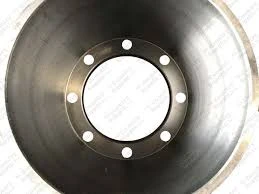
-
 Afrikaans
Afrikaans -
 Albanian
Albanian -
 Amharic
Amharic -
 Arabic
Arabic -
 Armenian
Armenian -
 Azerbaijani
Azerbaijani -
 Basque
Basque -
 Belarusian
Belarusian -
 Bengali
Bengali -
 Bosnian
Bosnian -
 Bulgarian
Bulgarian -
 Catalan
Catalan -
 Cebuano
Cebuano -
 Corsican
Corsican -
 Croatian
Croatian -
 Czech
Czech -
 Danish
Danish -
 Dutch
Dutch -
 Anglais
Anglais -
 Esperanto
Esperanto -
 Estonian
Estonian -
 Finnish
Finnish -
 French
French -
 Frisian
Frisian -
 Galician
Galician -
 Georgian
Georgian -
 German
German -
 Greek
Greek -
 Gujarati
Gujarati -
 Haitian Creole
Haitian Creole -
 hausa
hausa -
 hawaiian
hawaiian -
 Hebrew
Hebrew -
 Hindi
Hindi -
 Miao
Miao -
 Hungarian
Hungarian -
 Icelandic
Icelandic -
 igbo
igbo -
 Indonesian
Indonesian -
 irish
irish -
 Italian
Italian -
 Japanese
Japanese -
 Javanese
Javanese -
 Kannada
Kannada -
 kazakh
kazakh -
 Khmer
Khmer -
 Rwandese
Rwandese -
 Korean
Korean -
 Kurdish
Kurdish -
 Kyrgyz
Kyrgyz -
 Lao
Lao -
 Latin
Latin -
 Latvian
Latvian -
 Lithuanian
Lithuanian -
 Luxembourgish
Luxembourgish -
 Macedonian
Macedonian -
 Malgashi
Malgashi -
 Malay
Malay -
 Malayalam
Malayalam -
 Maltese
Maltese -
 Maori
Maori -
 Marathi
Marathi -
 Mongolian
Mongolian -
 Myanmar
Myanmar -
 Nepali
Nepali -
 Norwegian
Norwegian -
 Norwegian
Norwegian -
 Occitan
Occitan -
 Pashto
Pashto -
 Persian
Persian -
 Polish
Polish -
 Portuguese
Portuguese -
 Punjabi
Punjabi -
 Romanian
Romanian -
 Russian
Russian -
 Samoan
Samoan -
 Scottish Gaelic
Scottish Gaelic -
 Serbian
Serbian -
 Sesotho
Sesotho -
 Shona
Shona -
 Sindhi
Sindhi -
 Sinhala
Sinhala -
 Slovak
Slovak -
 Slovenian
Slovenian -
 Somali
Somali -
 Spanish
Spanish -
 Sundanese
Sundanese -
 Swahili
Swahili -
 Swedish
Swedish -
 Tagalog
Tagalog -
 Tajik
Tajik -
 Tamil
Tamil -
 Tatar
Tatar -
 Telugu
Telugu -
 Thai
Thai -
 Turkish
Turkish -
 Turkmen
Turkmen -
 Ukrainian
Ukrainian -
 Urdu
Urdu -
 Uighur
Uighur -
 Uzbek
Uzbek -
 Vietnamese
Vietnamese -
 Welsh
Welsh -
 Bantu
Bantu -
 Yiddish
Yiddish -
 Yoruba
Yoruba -
 Zulu
Zulu
Jan . 31, 2025 00:43
Retour à la liste
do you have to bleed drum brakes
When it comes to maintaining drum brakes, one of the most frequently asked questions is whether it's necessary to bleed them. The answer lies in understanding the mechanics of drum brakes, and knowing when and why bleeding is fundamental for optimal brake performance. This topic not only garners interest among car enthusiasts but also among everyday drivers who prioritize safety and vehicle longevity.
The process involves loosening the brake bleeder valve while the helper depresses the brake pedal systematically, ensuring fluid flows smoothly and air bubbles are expelled. It's crucial to maintain a close watch on fluid levels and refill as necessary to prevent introducing air back into the system. The effectiveness of the bleeding process can be verified by the restoration of a firm brake pedal feel and improved braking performance. Notably, regular maintenance can prevent the frequent need for bleeding. Keeping brake fluid at optimal levels, inspecting brake line integrity, and ensuring prompt repair of any leaks are proactive measures that extend the life of drum brakes. Additionally, using high-quality brake fluid as per the vehicle manufacturer's recommendation is an essential part of brake system care. In conclusion, bleeding drum brakes, while sometimes overlooked, is an important maintenance step that ensures reliability and safety. It is not merely a task for addressing specific issues but an integral part of routine brake maintenance ensuring your vehicle remains in peak condition. Given the potential consequences of neglected brake systems, the expertise of a professional or a well-informed car owner can go a long way in maintaining the vehicle's safety and performance standards. Ultimately, understanding when to bleed drum brakes, and executing the process correctly, reflects not just expertise and authority in auto maintenance but underscores a commitment to safety and reliability that all vehicle owners should uphold.


The process involves loosening the brake bleeder valve while the helper depresses the brake pedal systematically, ensuring fluid flows smoothly and air bubbles are expelled. It's crucial to maintain a close watch on fluid levels and refill as necessary to prevent introducing air back into the system. The effectiveness of the bleeding process can be verified by the restoration of a firm brake pedal feel and improved braking performance. Notably, regular maintenance can prevent the frequent need for bleeding. Keeping brake fluid at optimal levels, inspecting brake line integrity, and ensuring prompt repair of any leaks are proactive measures that extend the life of drum brakes. Additionally, using high-quality brake fluid as per the vehicle manufacturer's recommendation is an essential part of brake system care. In conclusion, bleeding drum brakes, while sometimes overlooked, is an important maintenance step that ensures reliability and safety. It is not merely a task for addressing specific issues but an integral part of routine brake maintenance ensuring your vehicle remains in peak condition. Given the potential consequences of neglected brake systems, the expertise of a professional or a well-informed car owner can go a long way in maintaining the vehicle's safety and performance standards. Ultimately, understanding when to bleed drum brakes, and executing the process correctly, reflects not just expertise and authority in auto maintenance but underscores a commitment to safety and reliability that all vehicle owners should uphold.
Suivant:
Dernières nouvelles
-
What Are Drum BrakesNouvellesJul.07,2025
-
Understanding Brake Drum MaterialNouvellesJul.07,2025
-
Semi-Trailer Brake Drum: A Key Component for Extreme Loads and Long-Distance TransportNouvellesJul.07,2025
-
Drum Brake Pads for SaleNouvellesJul.07,2025
-
Brake Drums for SaleNouvellesJul.07,2025
-
Brake Drum ManufacturerNouvellesJul.07,2025
-
Aluminum Brake Drums: The Future of High-Performance CarsNouvellesJul.07,2025
